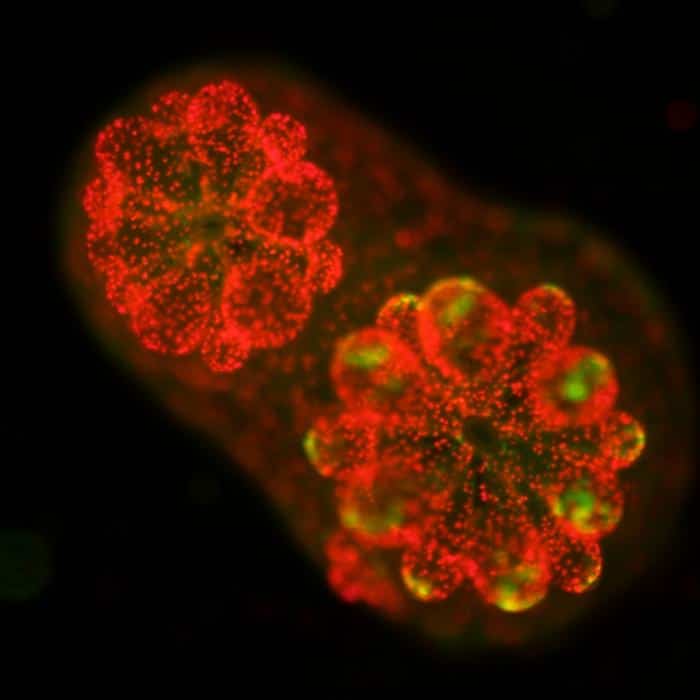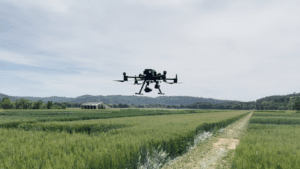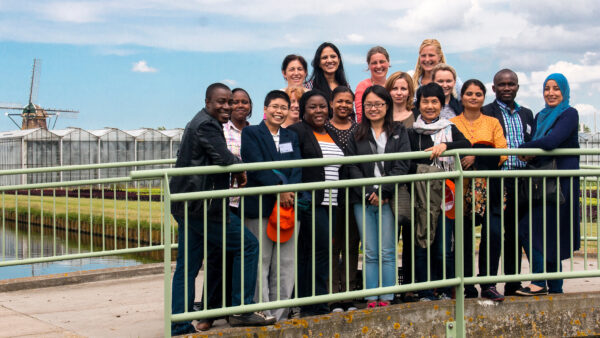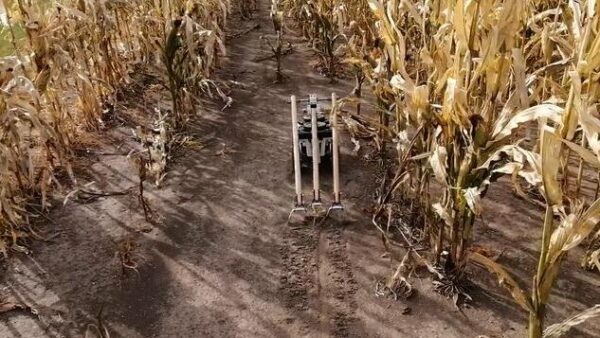Purdue Ag-celerator, a plant sciences innovation fund, awarded a total of $100,000 in investments to Gen3Bio Inc., a Purdue-licensed software that produces biochemicals through algae extraction, and Progeny, a camera drone software designed to rapidly convert images into crop management data.
“Already in its second year, the Ag-celerator program shows success in aiding Purdue innovators commercialize their plant science innovations,” says Karen Plaut, interim dean of the College of Agriculture. “The recipients are using their funding to advance their commercialization and are profiting greatly from their experience with Ag-celerator.”
Gen3Bio, which received $60,000, and Progeny, which received $40,000, presented with five other finalists to the Ag-celerator Selection Committee on Demo Day. The committee is composed of individuals from the Purdue Foundry, Purdue College of Agriculture and from select agriculture companies and investment firms.
“The Ag-celerator Selection Committee was very impressed by the quality of the presenters and their pitches. They deliberated long and hard before ultimately choosing Gen3Bio and Progeny,” says John M. Hanak, managing director of Purdue Ventures. “The Ag-celerator has become an important contributor to advancing Purdue’s plant sciences startups in this fast-growing industry.”
Gen3Bio’s technology transforms microalgae into specialty biobased chemicals, such as biofuels or bioplastics. The unique process using a blend of enzymes and offers an environmentally friendly alternative for biofuel extraction.
“We design, own and operate our own premises at each municipal wastewater treatment facility (WWTF) facilities using algae processing technology and return a percent of the net revenue from chemical sales to the municipalities,” says Kelvin Okamoto, CEO and founder. “First, our goal is to assist municipal wastewater treatment plants, but we hope to expand into other industrial applications as well.”
Other available algae extraction processes focus on obtaining fat molecules, but Gen3Bio’s enzymolysis process targets sugars, fats and proteins allowing more biochemicals to be extracted and sold.
“With the funds we received from the Ag-celerator, Gen3Bio will build a mobile 15-gallon enzymolysis pilot plant,” Okamoto says. “This mobile plant will be placed in at WWTFs to develop a specific efficiency model for each plant.”
Progeny co-founders Anthony Hearst, Ph.D. candidate in agricultural and biological engineering, and Katy Rainey, Ph.D., assistant professor of agronomy have developed a Purdue-patented drone imaging process that makes it easier for crop researchers and producers to use drone data for plant breeding, crop modeling, and precision agriculture.
“Many crop researchers and producers invest in drones with cameras without knowing that it can take days or weeks to convert drone imagery into quality-controlled growth and development metrics for their research plots or management zones,” Hearst says. “Progeny’s data and drone services can rapidly and precisely collect these metrics within minutes on inexpensive hardware.”
Progeny’s software transforms drone images into immediately usable growth and development data for customizable zones within a field. This fast and accurate conversion brings out the full potential of drones to facilitate crop research and management.
“The Ag-celerator program was an exciting way to learn about entrepreneurship,” Hearst said. “The instructors were highly knowledgeable, and their guidance helped us identify our key strengths and core principles as a company. We will use the Ag-celerator’s funding to develop a minimum viable software product and begin providing data services to researchers and farmers that need help with their drone data.”
Created in 2015, the Purdue Ag-celerator is operated by Purdue Ventures, the Purdue Foundry and the Purdue College of Agriculture.
Purdue Moves, a research advancement initiative that backs Purdue innovators researching different plant sciences, financially supports the Ag-celerator’s $2 million fund.
A ‘callout event’ about the next submissions for Ag-celerator funding will take place at 5:30 p.m. Jan. 25 at Burton D. Morgan Center.
Purdue innovators working in life or plant science fields and hoping to commercialize their intellectual property or “know-how” technologies can apply to the spring semester Ag-celerator this month.
Innovators must submit their applications by Feb. 8, and after review, the program will announce the semi-finalists on Feb. 15. After two commercialization and entrepreneurship workshops, the program will announce finalists on April 30 and invite them to give a live-pitch on Demo Day, May 7.
Previous recipients include Phicrobe LLC and Hydro Grow LLC, from the 2017 spring semester, as well as Akanocure Pharmaceutical Inc. and VinSense LLC, from the 2017 fall semester.
Source: Purdue University












